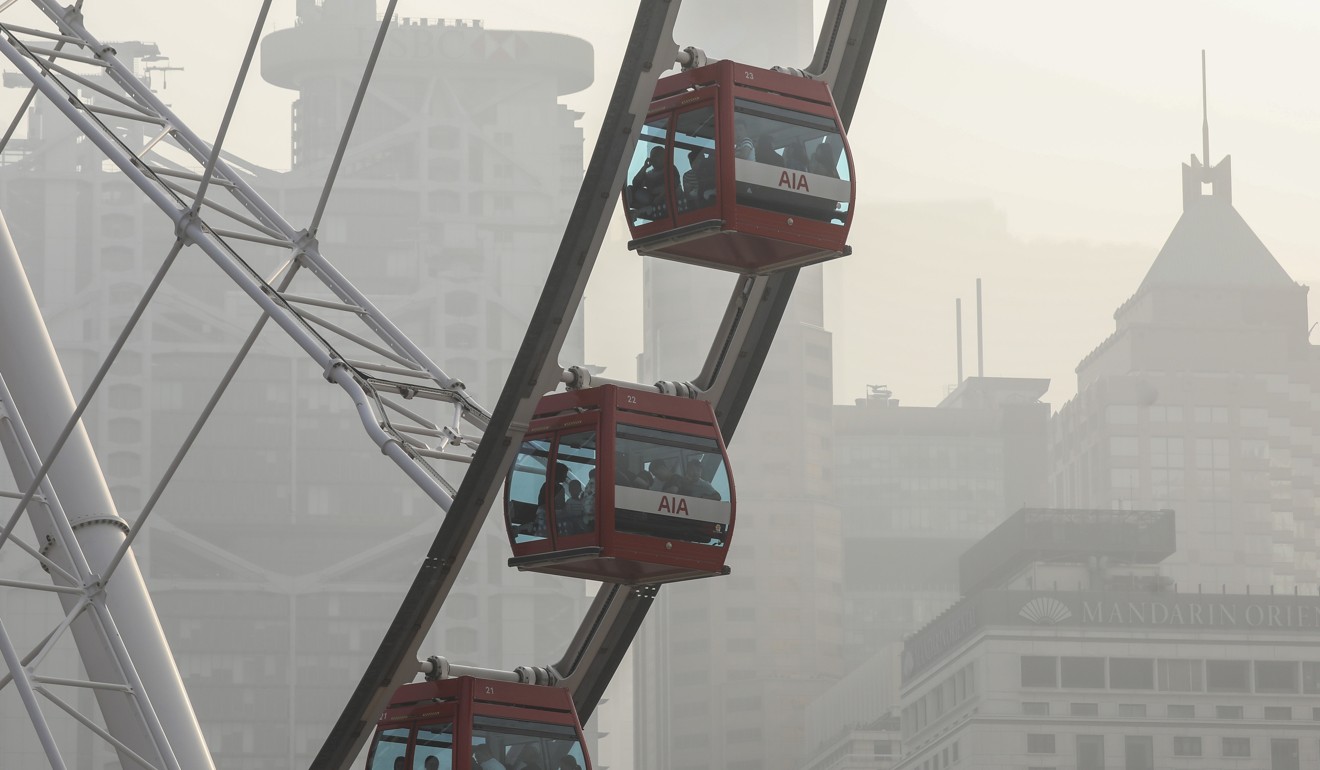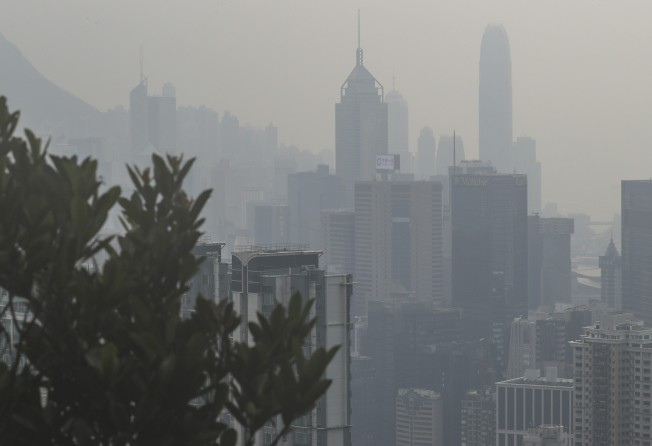
Most Hong Kong residents oppose government’s new air-quality proposals, survey finds
- More than 70 per cent of Hongkongers oppose plan to raise number of breaches in PM2.5 limits from nine to 35 days a year
- More than half the respondents also want government to manage various other pollutants – such as ozone and nitrogen oxide

More than 70 per cent of Hongkongers interviewed in a survey are not satisfied with the government’s proposed tightening of the city’s five-year air-quality goals.
While the proposal lowered the maximum amount of two pollutants allowed in the air per day, the government’s move to raise the number of times that limit could be exceeded in a year would “drastically increase public health risks”, a local pollution watchdog and other green groups said on Thursday.
The proposal was approved by the Advisory Council on the Environment in March despite criticism from local watchdogs and is now open for a three-month public consultation, which will conclude on October 11.
“The people have made their opinion loud and clear. Given the health risks associated with air pollution, the government’s conservative approach and the half-truths of its public consultation document are absolutely unacceptable,” said Patrick Fung Kin-wai, CEO of Clean Air Network that commissioned the survey.

The phone survey found 73 per cent of the 574 respondents were against raising the tolerance of breaches. Some 46 per cent thought the proposal would cause air quality in Hong Kong to deteriorate, while half were unsatisfied with the current air quality.
The group commissioned the survey to the Hong Kong Public Opinion Research Institute in June.
“For a layman like myself, and the members of the public we surveyed, I think we would like to know what is the reason for this change,” said Robert Chung Ting-yiu, director of the Public Opinion Research Institute.
Under the proposal, the 24-hour concentration limit for two pollutants, PM2.5 and sulphur dioxide, would be lowered from 75 microgrammes per cubic metre to 50 microgrammes and 125 microgrammes to 50 microgrammes, respectively.
PM2.5 are fine suspended particulate matters in the air which can enter deep into the lungs and cause a range of respiratory illnesses – from asthma to even cancer. Sulphur dioxide also causes breathing problems.
But the government raised the number of times the PM2.5 limits could be exceeded in a year from the current nine days to 35 days, which irked many environment activists.
The government’s proposal also did not address the limits for five other monitored pollutants – including ozone, which could cause lung damage, and nitrogen oxide, which had contributed to climate change. The survey found 59 per cent were against the narrow scope of the proposal.
Significantly, the lowered limits were still at least two times higher than the World Health Organisation’s air-quality guidelines. In March, the government told the advisory council it could not meet the WHO guidelines as large infrastructure projects would then be unable to pass environmental impact assessments.
Clean Air Network and other green groups said the government should be more open to listening to public opinion and set more realistic and effective policies to combat air pollution.
James Ockenden, an editor at Blue Skies China, said the government needed to invest more in the Environmental Protection Department to ensure it had more resources to tackle problems – such as idling engines of vehicles on the roads.
“Even though it may take more time and money, there is no option B for the public to choose. So, the government can do a better job,” Fung said.
“There is time before the end of the review for the government to provide alternatives.”